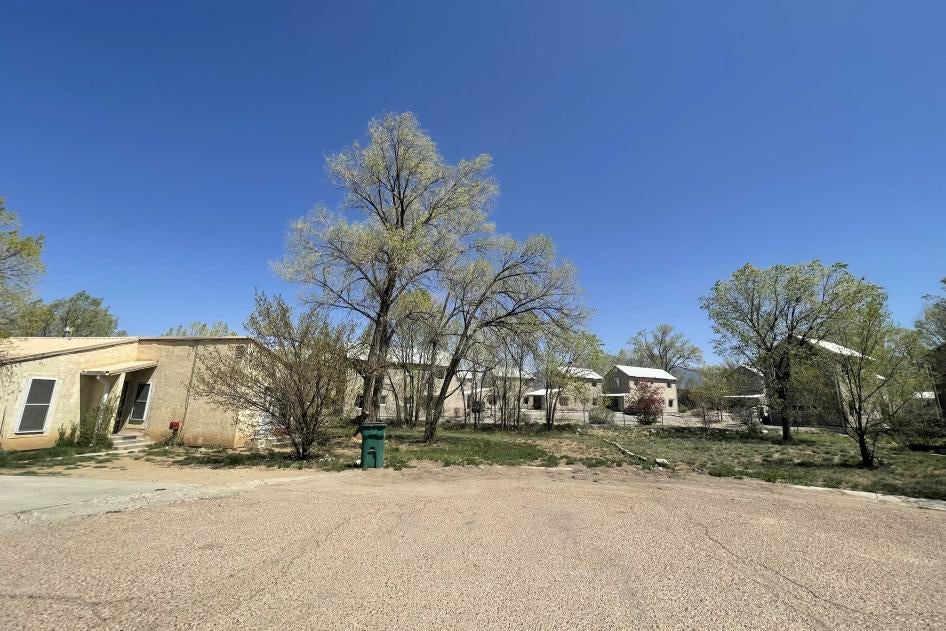Residents in public housing operated by New Mexico’s Northern Regional Housing Authority (NRHA) have described threats of eviction and other practices that appeared inconsistent with their right to housing under international law, Human Rights Watch said today in a letter to the housing authority. The letter contains recommendations for bringing the housing authority’s practices into compliance with international human rights standards.
“Public housing can be transformative for low-income households by offering affordable rents,” said Jackson Gandour, New York University School of Law fellow at Human Rights Watch. “But if public housing authorities arbitrarily pursue evictions, they undermine the program’s promise and place residents at risk of homelessness.”
Public housing is a federal program, overseen by the US Department of Housing and Urban Development, in which housing is owned by local public housing authorities and rented to low-income tenants. In the course of ongoing research into public housing and housing conditions in New Mexico and elsewhere, Human Rights Watch reviewed over 50 electronic court records and interviewed 10 NRHA residents.
The housing authority operates public housing across multiple counties in northern New Mexico. It has assumed responsibility for managing developments previously operated by various city, county, and smaller regional public housing authorities in response to declines in federal funding and, in some cases, corruption scandals.
Residents described being threatened with eviction by staff, even over minor alleged lease violations. Roger Chavez, 68, said that multiple letters warning him about possible eviction affected his mental health. “My depression has come back,” he said. “I still wonder at night, ‘What if I lose? Where am I going to go? What am I going to do?'”
Public housing rents are capped at 30 percent of household income. The average NRHA tenant’s income is US$15,741, and nearly 70 percent of the authority’s residents have very low incomes, defined as under 50 percent of the area median, which is about $53,800. These tenants have few options on the unsubsidized market, as New Mexico has just 62 affordable and available homes for every 100 very low-income households.
In interviews, tenants described threats of eviction and other practices that appeared inconsistent with international human rights standards.
One resident was evicted and forced to find temporary accommodation until a court reversed the action. “[Staff] showed up with the sheriff,” she told Human Rights Watch. “It was the middle of winter. I had no car, no cell phone, no nothing.”
New Mexico court data indicates that the NRHA has filed 45 eviction cases since 2015, 24 of which have most likely resulted in residents losing their homes. In an average year, 2.5 percent of NRHA households receive an eviction filing, and 1.3 percent are evicted.
The tenants were represented by counsel in just 3 of the 45 eviction cases that Human Rights Watch reviewed. An American Civil Liberties Union (ACLU) review of empirical studies indicates that providing a right to counsel for tenants in eviction cases lowers eviction rates, and the lack of counsel raises concerns that tenants may be unable to effectively present defenses or negotiate settlements.
Threats to evict tenants also caused some residents to express fear that housing authority staff would retaliate against them if they complained about conditions, sought legal help, or tried to fix problems themselves. “I can’t [make repairs]; they’d throw me out because you’re violating the policy,” one resident said.
International human rights standards prohibit evictions that place individuals at risk of homelessness. Before any resident is evicted, independent authorities should determine whether legitimate grounds for the eviction are proportionate to the consequences for the evicted person.
Available evidence indicates that public housing tenants face lower eviction risks than comparable tenants in private, unsubsidized housing. Still, any evictions in public housing raise human rights concerns, since many residents are at risk of homelessness if evicted. Public housing authorities have significant discretion in enforcing property rules and pursuing rent arrears, making federal oversight critically important.
However, no comprehensive, publicly accessible eviction data for federally subsidized housing programs are available, making it difficult to evaluate how NRHA eviction practices compare with those of other housing authorities. Two bills pending in Congress would require the disclosure of such data.
“Stable, affordable homes enable people to raise children, pursue an education, or retire with dignity,” Gandour said. “But public housing can only fulfill its purpose when public housing authorities treat their residents in accordance with international human rights standards.”

